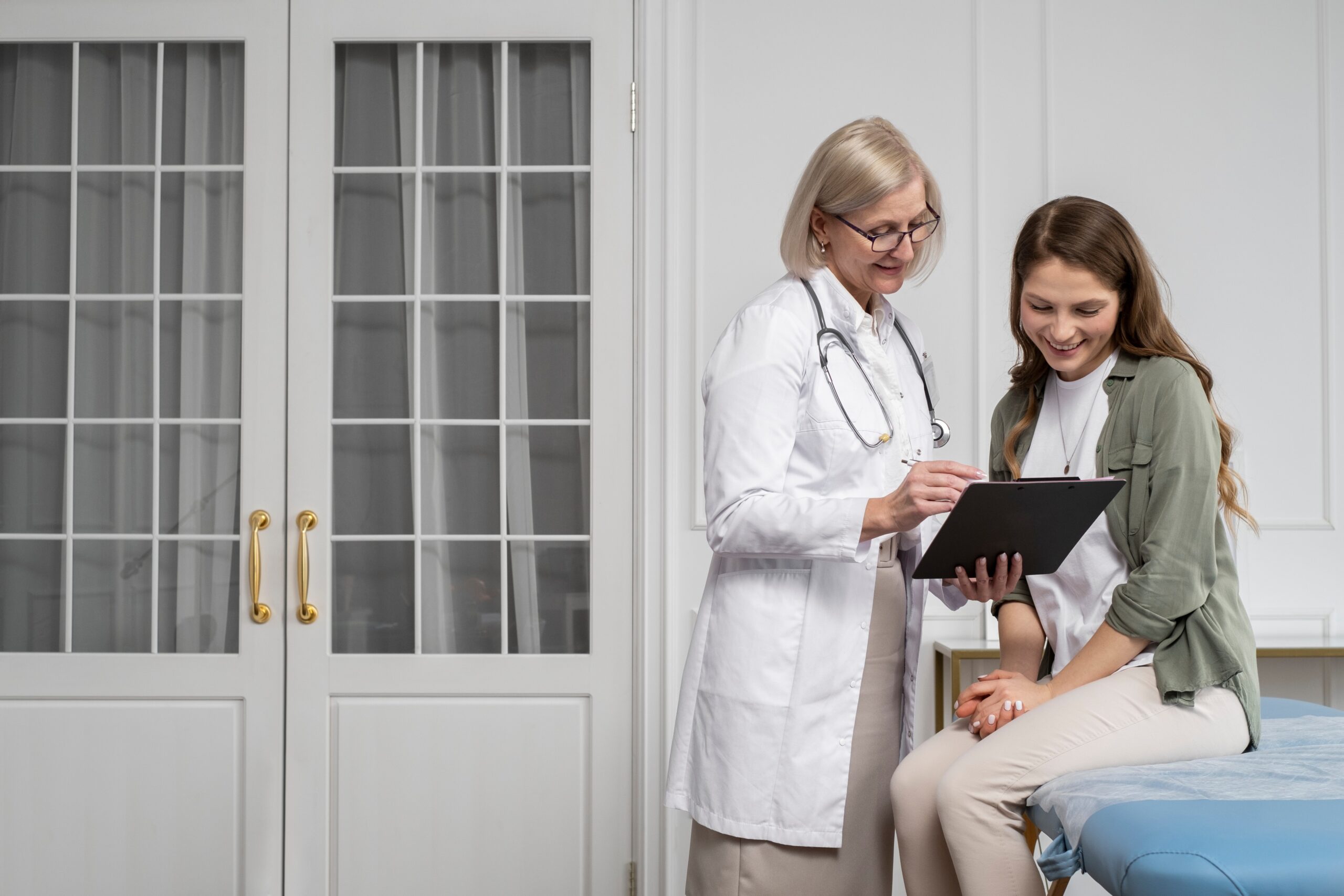Cervical cancer is a type of cancer that occurs in the lower part of the uterus (cervix). This cancer is mainly caused by different strains of human papillomavirus (HPV). The human body normally eliminates any activity of such viruses. But in some cases, the virus remains in the body and eventually turns the cells of the cervix into cancer cells. Although it sounds daunting, you can reduce your chances of getting cancer! Screening and vaccination play a major role in helping you deal with this and this article sheds some light on the latter:
HPV Vaccine
The HPV vaccine can help protect you from HPV infection by protecting you from HPV which can be responsible for about 90% of all cervical cancers. To reduce the risk, it is better to follow proper preventive steps and get vaccinated. Talking about the best vaccination for cervical cancer available in India, the details are listed below:
Existing Vaccines In India
India has access to two licensed vaccines. The Gardasil vaccine protects you against four strains of HPV (quadrivalent). Second, the Cervarix vaccine gives you protection against two strains of HPV (bivalent). The former is manufactured by Merck and priced at Rs. 2,800 per dose. The latter is made by GlaxoSmithKline and priced at Rs 3,299 per dose. The course of this vaccination in life is two doses of any vaccine.
Recently, India’s first quadrivalent vaccine called Cervavac has been launched for protection against cervical cancer. It has been manufactured by the Serum Institute of India (SII) and the Department of Biotechnology. The vaccination’s cost is yet to be determined, however, it is supposed to be in an affordable range.
The Right Age to Get Vaccinated against HPV
The majority of occurrences of cervical cancer are linked to different HPV strains, which are transmitted through sexual contact. Between the ages of 11 and 12, both boys and girls receive the HPV vaccine. Age 9 is the minimum age for the vaccine. It should be given to both boys and girls before they engage in sexual activity and are exposed to HPV. The HPV vaccine may not be as effective after someone has the disease. Additionally, younger ages have better responsiveness to the vaccine than older ages do.
Every 11- and 12-year-old is given the HPV vaccine twice, each at a minimum six months interval. Teenagers ages 13 and 14 and youngsters ages 9 and 10 can also get vaccinations on a two-dose plan. The two-dose regimen is effective for kids under 15 according to research.
Teenagers and young adults who start the vaccination series later, between the ages of 15 and 26, should have the vaccine in three doses.
Catch-Up Vaccination
All individuals up to the age of 26 who have not received the HPV vaccinations can opt for a catch-up vaccination.
Ask your doctor whether they think you should get the HPV vaccine if you’re between the ages of 27 and 45.
Should sexually Active People get HPV Vaccination?
The vaccine may still be beneficial to you even if you already get a variant of HPV since it can shield you from further strains which you still do not have. Yet, neither of the vaccines can reverse a pre-existing HPV infection. Only certain HPV strains to which you have not yet been exposed are covered by the vaccines.
Who Should Avoid The Vaccine?
It is best to avoid the vaccine during pregnancy. Additionally, if you are moderately or severely ill, then try not to get the vaccine. You shouldn’t receive the vaccine if you’ve ever experienced a potentially fatal adverse reaction to any vaccine ingredient or a previous dose of the vaccine. Moreover, you must consult your doctor if you happen to have any severe allergies including latex, yeast, etc.
Is There Any Side-Effect?
Numerous studies have established the safety of the HPV vaccine. The impacts are typically not severe overall. Soreness, swelling, or redness at the injection site are the most frequent adverse reactions to HPV vaccines. You may experience fainting or dizziness after the injection. After the injection, you should sit still for 15 minutes to lessen the chance of fainting. Other symptoms include weariness, weakness, nausea, and headaches.
Precautions After Vaccination
It is important to take routine checkups despite getting vaccinated for HPV. If you do not fall under the age group for vaccination, then it is best to take prevention. It may include opting for safe sex, avoiding multiple sex partners, and quitting smoking.
Planning to get the HPV vaccination done?
Get in touch with the Smart Doctor

